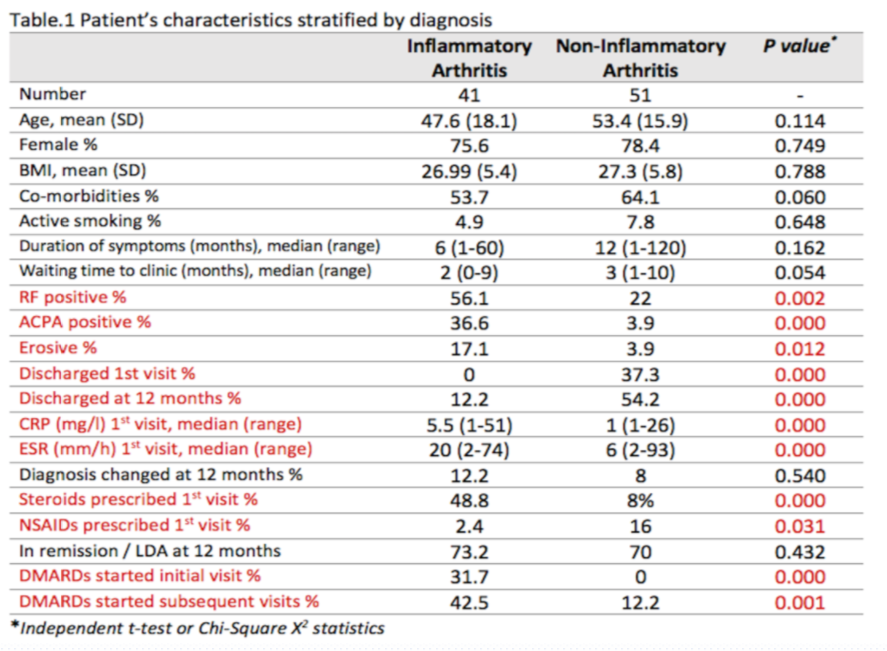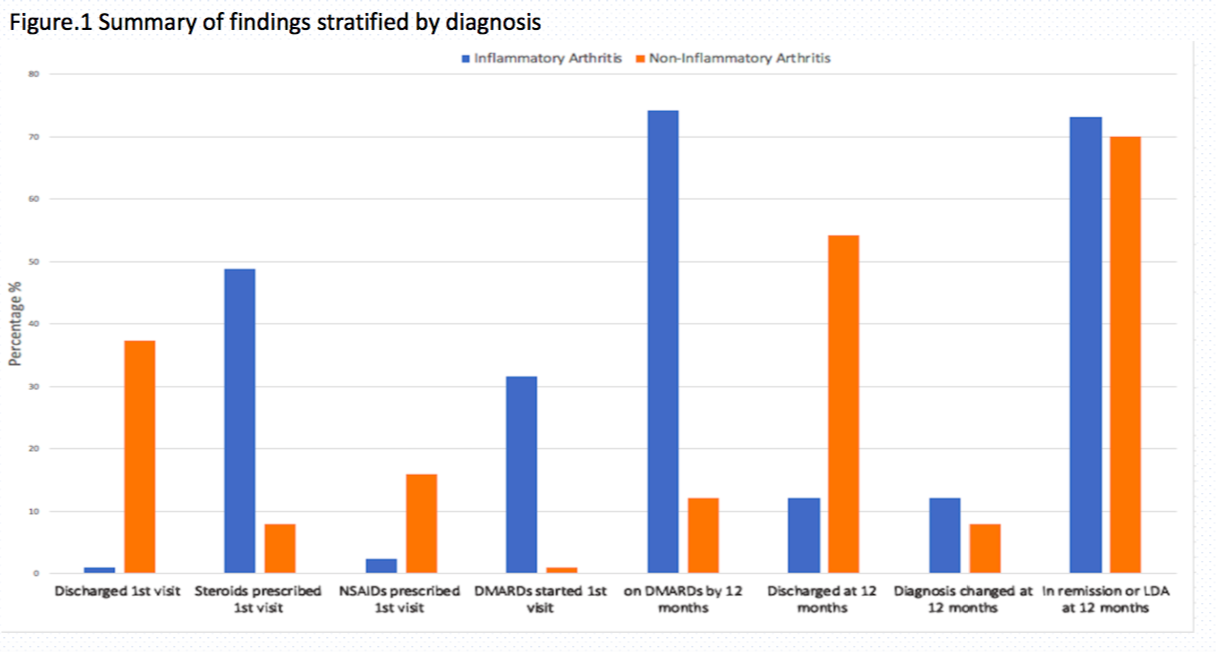19A141
Profile and outcomes of early arthritis clinic patients: a tertiary referral center experience
Author(s)
Abuelmagd Abdalla Imran Ali Yousef Alammari Loai Shakerdi Douglas Veale
Department(s)/Institutions
St. Vincent's University Hospital - Dublin
Introduction
Rapid access to specialist care and early treatment with disease-modifying anti-rheumatic drugs (DMARDs) is crucial to prevent poor outcomes. Early identification of patients with Inflammatory Arthritis (IA) can be achieved through the early arthritic clinic (EAC). EULAR recommends that patients with suspected early arthritis should be referred to and seen by a rheumatologist within 6 weeks of symptoms onset.
Aims/Background
To describe demographic, clinical & immunological characteristics of a cohort referred to our well established EAC together with their outcome at 12 months.
Method
retrospective review to all patients referred to the EAC between Jan-June 2016 was conducted. Data collected included co-morbidities, the pattern of conventional and/or biological DMARDs uptake, rate of steroids/ NSAIDs prescribing, rate of requested diagnostic imaging, frequency of IA diagnoses, discharge to primary care & the waiting time to see a rheumatologist.
Results
113 patients attended our EAC during the study period. 21 were excluded (only re-linked to service). 92 patients underwent full assessment as newly referred patients to attend rheumatologist for the first time. The mean age is 50.8 years, 77.2 % were females with a mean BMI of 27.18. Patients had a median duration of symptoms for 7.5 months with a median waiting time to see rheumatologist of 2 months. See table 1.
Conclusions
EAC is an efficient platform which provides rapid access for specialist assessment for early IA identification, early DMARDs and high discharge rate to those don’t require ongoing specialist care.


